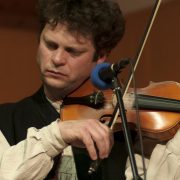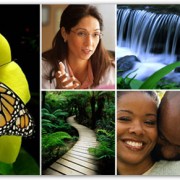How I Discovered I Am an Intuitive Empath
This is chapter 5 in my book, The Gifted Highly Sensitive Introvert: Wisdom for Emotional Healing and Expressing Your Radiant Authentic Self.
Search for my ebook and paperback book on Amazon and click the “Look Inside” button to read the first several pages of the book. You can buy it on Amazon.
“The trademark of an empath is feeling and absorbing other people’s emotions and/or physical symptoms because of their high sensitivities. These people filter the world through their intuition. Empaths are big-hearted people and try to relieve the pain of others … suddenly they’re the one feeling drained or upset when they felt fine before.” ~ Dr. Judith Orloff is a New York Times bestselling author and a member of the UCLA psychiatric clinical faculty.
I was 44 years old when I first read Dr. Elaine Aron’s book, The Highly Sensitive Person. For almost four and a half decades I had tried to be normal and fit in. Little did I know that only 20% of the population is highly sensitive and that I was a highly sensitive person. I could never be statistically normal since I am wired differently than 80% of the population. I had studied with some of the best healers and psychologists I could find, and I had been recovering in many ways, but I hadn’t realized the impact of being highly sensitive.
It had been there all along, fierce but nameless, one of the strongest forces exerting itself on my development, and I had just discovered that it had a name: I was a highly sensitive person.
Later on I discovered the spiritual teachings of Rev. Arthur Burk, who called my personality type a redemptive gift of Mercy. Because Mercy type people sense suffering more deeply than others, we tend to run away from pain and conflict. I learned from Arthur Burk and Elaine Aron that my personality wasn’t a cruel joke or a mistake, but that it had a purpose: a high one … higher than I could have ever imagined.
So, if you’re highly sensitive too, sit down. We’re probably going to be good friends.
In the culture where I grew up, high sensitivity wasn’t good for much of anything. It never got me recognized or promoted. It didn’t make me feel pretty. It didn’t make me feel confident. It felt like a burden. Or maybe a defect. Whatever it was, I had learned to hide it.
But I wasn’t just a regular highly sensitive person.
I was an intuitive empath.
All of my life I’ve had intense emotions.
Things bothered me for a long time,
while others seemed to get over them more quickly.
What’s an intuitive empath?
Intuitive empathy is a form of intuition in which you literally sense and absorb energy and information into your own body from other people.
Dr. Judith Orloff believes that empaths experience an extraordinary state called “mirror-touch synesthesia.” Synesthesia is a neurological condition in which two different senses are paired in the brain. For instance, you see colors when you hear a piece of music or you taste words. With mirror-touch synesthesia, people can actually feel the emotions and sensations of others in their own bodies as if these were their own. (Reference 2)
Here are a few examples of how I learned that I am an intuitive empath.
1) After I led a Florida beach retreat for six people, Laura gave all of us a massage. I went last. She named the places my body was storing pain, and to my surprise, she told me that my retreat participants had stored their pain in the same places. For example, Mary stored her pain in her left shoulder blade and I had a knot in the exact same place. Jane’s pain was stored in her right hip, and I had a muscle cramp in my right hip in the exact same place.
This was the first time that I realized I was absorbing other peoples’ pain. After that I learned how to protect my energetic boundaries while I honed my ability to intuitively read my clients so their healing could be accelerated.
2) When I watched the movie “The Green Mile,” I was shocked to discover that I was distressed for an entire week. The setting of the movie is Death Row. The main character is an empathic healer who has the ability to sense the intense suffering in other people. He runs their energy through his body to heal them, which eventually causes intense suffering in himself. I became aware that I was running my clients’ energy through my body to heal them, and I realized how much pain it was causing me. My muscles were tied in knots and I was exhausted every day.
3) When I saw a movie portraying the holocaust, I was distraught for another week. I reeled from the horror of those gruesome events.
I learned to research movies so I could avoid the ones that would provoke intense unpleasant reactions. I walked out of movie theaters if the film unexpectedly turned violent. I stopped watching TV news reports. I turned off National Public Radio when they showcased war stories.
4) When I had chiropractic adjustments, my gifted healers often told me stories of other patients who were suffering. I’d be lying on the adjustment table, energetically wide open, ready to receive my healing treatment. As the chiropractor told me painful stories, I felt the other people’s suffering flood my body. I couldn’t stop myself from feeling anxious, which is the opposite of what needs to happen to be healed. I didn’t tell my chiropractors to stop the stories because handling conflict was so uncomfortable for me.
5) This next example occurred years later at the beginning of a massage. When my well-meaning masseuse told me a story about her cat getting attacked by a dog, my whole body stiffened in fear. I couldn’t help but imagine the pain of the cat. My massage therapist had no idea this story would upset me. By this time I had developed skills to assert myself. I asked her to tell me only uplifting stories, or better yet, to hold silence during our massages so I could develop an intimate relationship with my body instead of being distracted by talking.
I wondered why these adept healers didn’t already know their stories would disturb me. I wondered why they didn’t place their full attention on me instead of talking about other people or hurt animals. Apparently my healing practitioners weren’t empaths, or they would have realized that these stories would have been disturbing.
Conclusion
These are five of the ways that I learned that I am an intuitive emapth and why things affect me so strongly. I had to learn how to advocate for myself when people didn’t understand me. I had to develop the courage to speak up and ask for what I needed. I chose to stop putting myself in environments that would be stressful. I developed conflict management skills so I could foster healthy personal and professional relationships.
Not all highly sensitive people are intuitive empaths, but if you think you might be, it’s worth your time to study the topic so you can take better care of yourself. If you learn to manage the challenges, you’ll be more empowered to offer your beautiful healing gifts without getting exhausted and sick.
Reflections. Now It’s Your Turn
Empaths need to ground themselves and set good energetic boundaries so they remain centered. Schedule at least thirty minutes of alone time every single day so you can release the energy you’ve picked up from others.
- Meditate and relax. Sit in a quiet place and play your favorite soothing music. Or you might want to soak in the bathtub. Empaths love water. Focus on your heart. Breathe in to the count of four, hold your breath to the count of four, and breathe out to the count of eight. Do this for at least five minutes to soothe your nervous system. Thirty minutes is better.
- Describe in one sentence: a friend’s story or a news report that disturbed you.
- Observe the reactions in your body. Remove the judgment that the experience is good or bad, or right or wrong. Just stay present with your body and be non-judgmental. How do you feel in your body? Describe the location of the emotion and the sensation. Do you feel tightness in your chest? Queasy in your gut? Does your jaw tighten? Does your breathing become shallow?
- Press your feet to the floor so you can feel them better. Feel your back against the chair or sofa. Imagine that you’re standing barefoot on the earth, and that you have long strong roots like a giant redwood tree. Breathe deeply.
- Ask yourself, “Is this my issue or someone else’s?” Be objective. Empaths often feel responsible for circumstances that they can’t do anything about. Let go of what is not yours to heal. Say a prayer, “I give this issue to you, God. Protect and heal my friend.”
References
- The Highly Sensitive Person. Dr. Elaine Aron. 1997
- The Empath’s Survival Guide: Life Strategies for Sensitive People. Dr. Judith Orloff. 2017
- The Redemptive Gifts of Individuals. CD set. Rev. Arthur Burk. Sapphire Leadership Group, Inc.
Author: Benita A. Esposito, MA offers life coaching and counseling services in-person in Georgia and worldwide via videoconference or telephone. Complete the Contact Form for a complimentary 10-minute phone chat to see if we are a good match.











Leave a Reply
Want to join the discussion?Feel free to contribute!